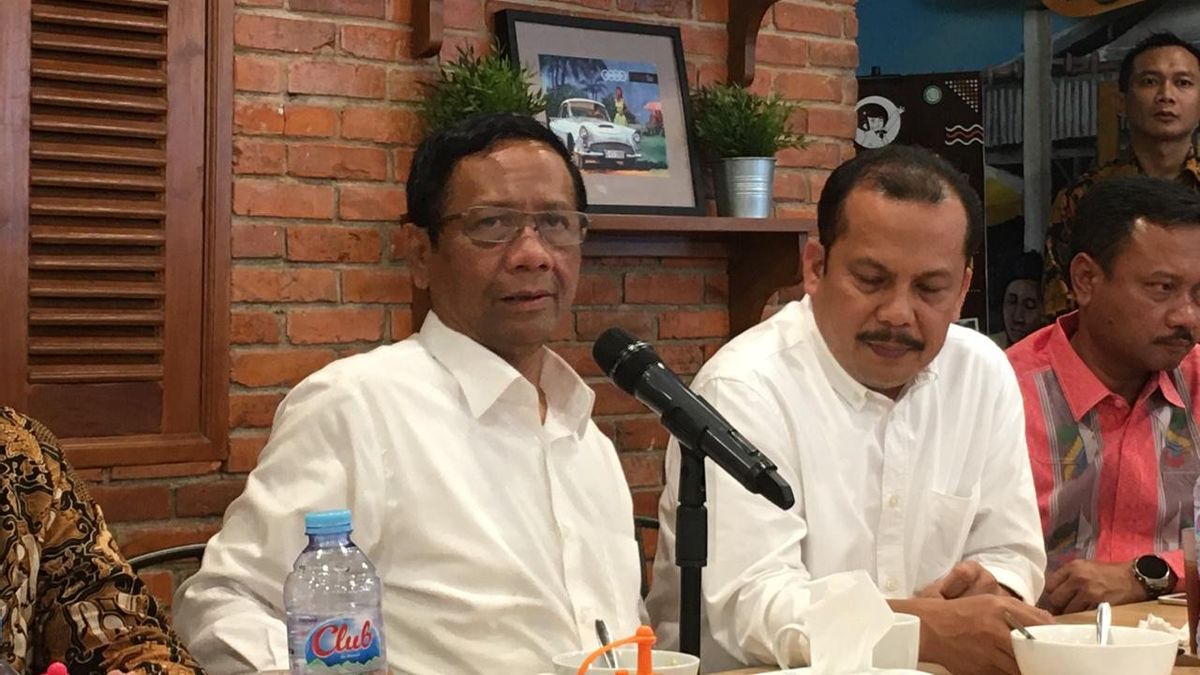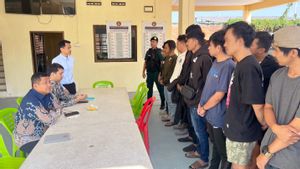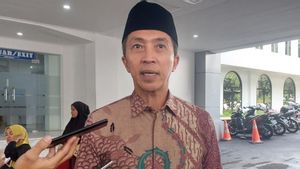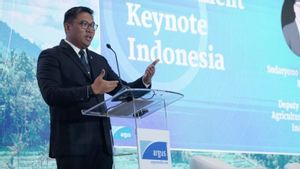JAKARTA - The conflict in Xinjiang has attracted international eyes to highlight the alleged human rights violations that the Uighur Muslim ethnic group must suffer. Uighur Muslims who live in camps in China continue to experience heart-wrenching acts of persecution.
The Indonesian government through the Coordinating Minister for Political, Legal and Security Affairs Mahfud MD has also conveyed its position regarding the Uighur Muslim polemic in China. In his meeting with the Chinese ambassador to Indonesia Xiao Qian, Mahfud MD expressed the objection of the Indonesian people who are disturbed by the humanitarian incidents experienced by the Uighurs.
"I have summoned the Chinese ambassador, I say Indonesian Muslims are somewhat disturbed by the Uighur incident," said Mahfud, at the year-end reflection event, Menteng, Central Jakarta, Thursday, December 26.
Mahfud also explained the reason why the Indonesian government could not just interfere in China's domestic problems, related to the Uighur Muslim ethnicity. Apart from respecting the international relations between the two countries, the government has also asked the Chinese Ambassador to Indonesia to explain the root of the problems that have occurred in Xinjiang.
For a long time, various community groups have also played a role in this, from the Indonesian Ulema Council (MUI), to religious-based social organizations such as Muhammadiyah, highlighting the problems experienced by the Uighur ethnicity. Mahfud is convinced that this problem cannot be ignored, it is just that the root of the problem must also be known.
"How come in Uyghurs like that? Then he (the Chinese ambassador) explained what Uighurs are. Oh, then we don't interfere. This is called diplomacy. Soft diplomacy. Not megaphone diplomacy. That's about Uyghurs," he explained.
Summarized from Tempo.co, Presidential Chief of Staff Moeldoko said the Indonesian government did not interfere with Uighur Muslims. Moeldoko emphasized that each country has sovereignty to regulate its citizens.
According to Moeldoko, the Indonesian government did not enter into the affairs of other countries. "Every country has the sovereignty to regulate its citizens. So the Indonesian government does not interfere in China's domestic affairs," said Moeldoko in his office, Monday, December 23.
Bringing Uighur Ethnic Issues to the United Nations
Indeed, the attitude of the Indonesian government which does not want to interfere in China's domestic affairs towards the Uighur Muslim ethnicity has drawn criticism. However, that does not mean that Indonesia does not close its eyes regarding human rights violations experienced by Uighur Muslims.
Professor of International Law at the University of Indonesia (UI), Prof. Hikmahanto Juwana, said the Indonesian government could bring the issue of alleged human rights violations experienced by Uighur Muslims to the UN. This includes Indonesia's obligation as a member of the United Nations to propose to the General Assembly, Security Council or Human Rights Council allegations of gross human rights violations.
"It is an obligation for all countries according to international law (erga omnes) to be concerned about gross human rights violations. This includes verifying the truth of gross human rights violations," said Hikmahanto in his written statement.
"Therefore, if Indonesia brings the issue of alleged gross human rights violations to various organs within the UN against the alleged gross human rights violations against Uighur Muslims, this is an implementation of Indonesia's obligations as one of the international community," he continued.
The English, Chinese, Japanese, Arabic, and French versions are automatically generated by the AI. So there may still be inaccuracies in translating, please always see Indonesian as our main language. (system supported by DigitalSiber.id)











